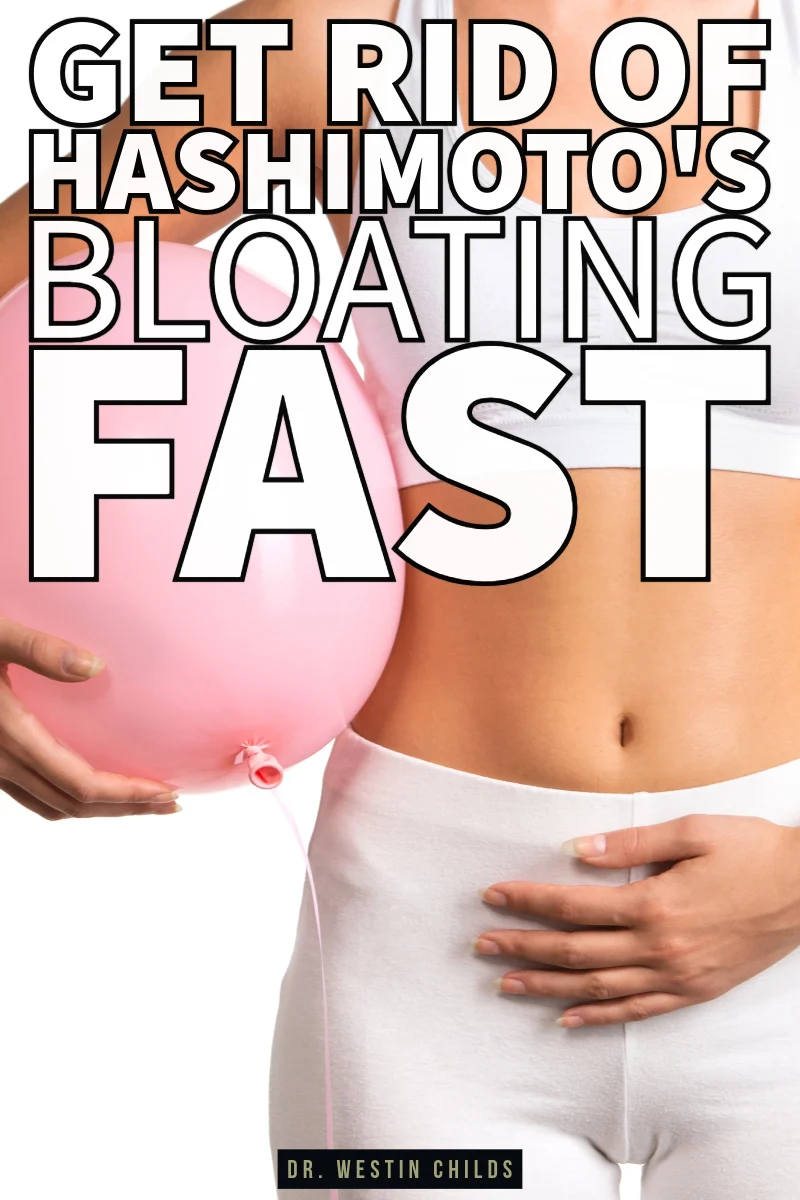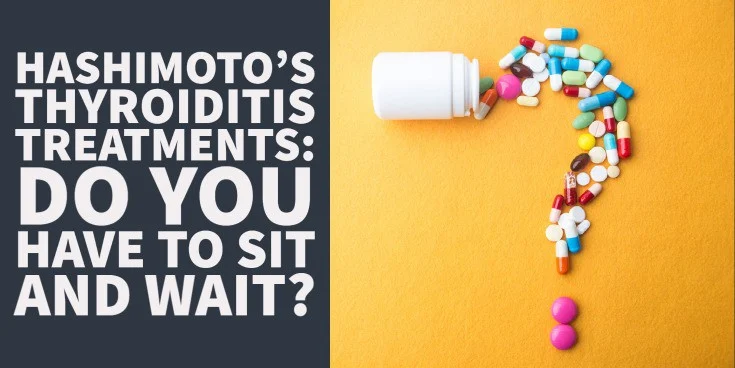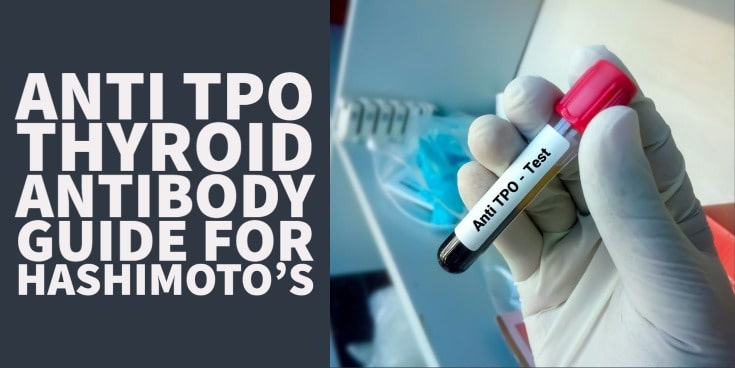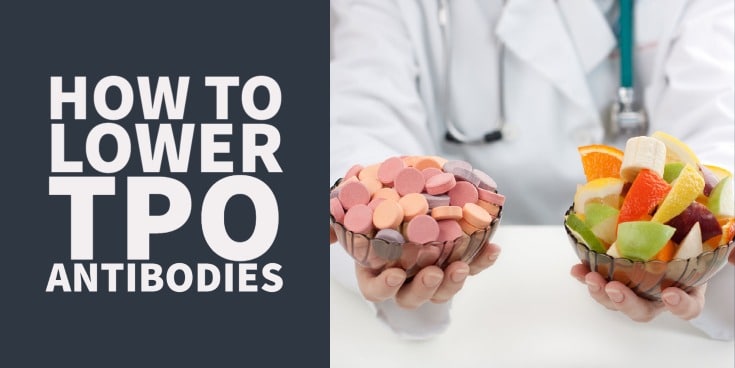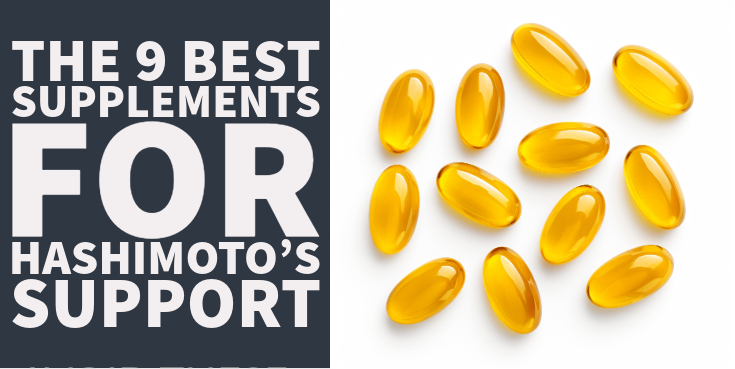Bloating is never a normal symptom, especially if you have Hashimoto’s.
In fact, the presence of this symptom is a warning sign that something is off with your thyroid.
But the good news is that you don’t have to live with it forever, and a few simple treatments can help you slim down your waist and eliminate excess fluid.
Here’s what causes it and, more importantly, how to fix it fast:
What Causes Bloating in Hashimoto’s Patients?
#1. Hypothyroidism
The most common cause is just being low thyroid.
Hashimoto’s slowly destroys your thyroid gland over time, leading to a low thyroid state.
And, as a result, you will see many different changes in your physiology, several of which lead directly to bloating.
For instance:
- As thyroid hormone decreases, so too does gut motility (1). Gut motility is a way to describe how active your intestinal tract is. When your thyroid is working properly, your gut will move food through your stomach at a steady rate. But in the hypothyroid state, this transit time lengthens. The result is that food gets backed up into your intestines, leading to constipation and protrusion of the gut. This problem is sometimes referred to as thyroid belly.
- On top of this, having a thyroid problem will slow down your digestion, which allows food to sit in your stomach and intestines longer than it should. As it stays there, certain bacteria can use it to multiply and grow in places they shouldn’t. This syndrome is referred to as small intestinal bacterial overgrowth (2) and is seen in up to 50% of thyroid patients. One of the major symptoms of this condition is gas and bloating, but you may also experience abdominal pain, and either constipation or diarrhea.
- To make matters worse, the low thyroid state also impacts your metabolism and hormones, which, unfortunately, leads to more belly fat.
#2. Fluid Retention
As thyroid hormones decline in your body, your capillaries become leaky (3), which results in fluid draining into your tissues.
This can give you a very swollen look.
If it happens in your abdomen, it can make you look bloated.
And when you combine fluid retention with constipation, your stomach will protrude, making you both look and feel bloated.
#3. Hashimoto’s-Related Medical Conditions
Your thyroid condition predisposes you to developing several medical conditions that can cause bloating. These include:
First: Food Sensitivities
Because of your autoimmune condition, you’re going to be more sensitive to certain foods.
And you may even develop more sensitivities over time.
Some of the most common food sensitivities include:
- Gluten and wheat (4)
- Dairy proteins and sugars (5)
- Soy products
Eating these foods can not only trigger an immune response leading to a rise in your thyroid antibodies, they can also lead to bloating.
Second: Gut Problems
The gut-thyroid connection is real, and due to how your thyroid impacts your gut, it increases your risk of developing many conditions, including:
- Small Intestinal Bacterial Overgrowth (SIBO)
- Leaky gut (intestinal permeability)
- Reduced production of digestive enzymes
- Low stomach acid (6)
- Gut microbiome dysfunction
- H. pylori infections (7)
- Candida overgrowth
Research shows that up to 70-80% of patients with Hashimoto’s have some issue with their gut, meaning this matters to most of you reading this right now.
How to Reduce Bloating Fast
These are the causes, now we need to talk about what to do about them.
And first on that list is…
#1. Change Up Your Diet
This is probably the single most effective thing that you can do.
Not only will it help improve your thyroid, it will also help improve your gut at the same time.
But many patients with Hashimoto’s screw this up, so make sure you follow these recommendations:
Eat as clean as possible.
This means focusing on single-ingredient whole foods, opting for organic whenever possible, and cutting out pre-packaged and processed foods 100%.
If you do this and nothing else, you will probably see significant improvement.
But it may not be enough to solve your bloating completely, which is why I would still recommend a few other changes:
Next, eat as many anti-inflammatory foods as possible.
This would include things like fish, fruit, leafy greens, healthy fats, and spices like turmeric and ginger.
As long as you’re preparing most of the food that you’re eating, you should be good.

The 80/20 rule applies here, but you may need to make it 95/5 in the beginning.
Just don’t expect to get healthy anti-inflammatory foods while eating out.
Even if things “sound” healthy, they are almost guaranteed to be full of inflammatory fats and oils, thereby making your problem worse.
Next, focus on eating foods that improve your thyroid.
That means foods that are naturally high in zinc, selenium, and magnesium.
But you’ll also need to make sure you’re eating the right amount of protein and carbs.
The magic number for both is 100 grams per day.
That is 100 grams of quality protein and 100 grams of quality carbohydrates.
#2. Move Your Body
It might not make sense that exercising will help reduce bloating, but it absolutely will.
Here’s why:
- Movement helps gas and stool pass through your GI tract, leading to more frequent bowel movements. The less stool you have in your gut, the less bloated you will feel.
- Movement also helps your body eliminate extra fluid via lymphatic channels. And if you recall, fluid retention is one of the major causes of bloating.
- It also helps improve circulation through your body, bringing vital nutrients to your thyroid so it can produce more thyroid hormones.
To get these benefits, you don’t need intense exercise, either.
100 total minutes of zone 2 exercise each week will do the trick.
And exercising at this intensity will also provide a boost to your thyroid (8).
#3. Optimize Your Thyroid Medication
While diet and exercise will help reduce bloating, you may find that you need to optimize your thyroid hormones before you get complete relief.
This doesn’t mean you won’t get some benefit from doing what we just discussed, but if you don’t treat the root cause, your problems may come back.
The root cause in this situation is low thyroid hormones.
And while it may sound easy to fix, it’s more difficult than you might think.
Because many patients with Hashimoto’s do not have optimal thyroid levels, even though they are taking thyroid medication.
To get that optimization, here’s what you’ll need to do:
- Use a combination of thyroid hormones, including T4, T3, and T2. Your ratio of T4:T3 should be around 80:20 with 100-200 mcg of T2.
- Make sure you are taking your thyroid medication consistently and away from food, supplements, and coffee.
- Make sure you are absorbing your medication by addressing any existing gut issues.
- And check your thyroid lab tests regularly to ensure you are getting what you need. This means checking your free T3 and free T4 in addition to TSH.
#4. Take the Right Supplements
For bloating, the right supplements can be more powerful than medications.
In fact, some medications, like acid blockers, can actually make bloating worse!
Supplements aren’t always needed, but they can help you reduce bloating faster.
And if you like the idea of that, here’s what you’ll want to take:
Ozonated Magnesium
Magnesium may be one of the best tools to eliminate bloating, but only if you use the right form.
That form is called ozonated magnesium.
It’s created when magnesium is treated with ozone, which imparts an additional oxygen molecule into its structure.
As a result, it becomes Mag 07, and it takes on special properties.
The most important thing is that when you take it by mouth, as it passes through your intestinal tract, it releases that oxygen into your gut where it softens your stool, clears trapped waste and gas, and naturally detoxes.
This is NOT your run-of-the-mill standard magnesium glycinate or magnesium citrate. It’s much better.
200-500 mg taken each night before bed will help you eliminate “waste” weight in the form of stool, gas, and fluid first thing in the morning.
You can get this form of magnesium here.
Berberine
Berberine is a plant-based compound that acts as a natural antibiotic.
When you take it, you help kill off unhealthy gas-producing bacteria, which helps reduce gas production directly.
But you also get the added benefit of reducing gut inflammation and improving insulin sensitivity.
Together, these help your body regulate water retention and reduce the storage of fluid in your midsection.
It also has a direct impact on metabolic health, which means it’s easier to lose belly fat.
To get these benefits, you’ll want to use dihydroberberine. You can get it here.
Digestive Enzymes
You can actually take the same enzymes that your body produces naturally in supplement form.
And doing this will help you more easily digest your food for better nutrient absorption and gut microbiome health.
Taking them can even help you more effectively absorb thyroid medication.
For patients with Hashimoto’s, I recommend using plant-based compounds like bromelain, which comes from pineapple, and papain, which comes from papaya.
For best results, take your enzymes 15-20 minutes before you eat.
If you want a recommendation for an excellent combination of digestive enzymes, try these.
Betaine HCl
Betaine helps your body naturally produce more stomach acid by providing a source of hydrochloric acid.
This is important because many thyroid patients suffer from hypochlorhydria, which is a fancy name for low stomach acid.
More stomach acid allows for the breakdown of food, protein, and medications.
Betaine is best used with food (not on an empty stomach).
Probiotics
Probiotics are obviously great as well, especially if you believe that you are suffering from intestinal dysbiosis.
There are lots of probiotic strains and species available, but these three work best for those with Hashimoto’s:
- Soil-based organisms
- Saccharomyces boulardii, which is a beneficial yeast
- And multi-strain bifido and lactobacillus species
For best results, use a probiotic that has all three with at least 50 billion CFU per serving.
Natural Antibiotics
These are great for “resetting” your gut and “starting over”.
They work by killing everything they come into contact with, both the good bugs and the bad.
This is great if you have an overgrowth of unhealthy bacteria in your gut, but it can become a problem if you take them for too long.
To avoid this, use them for short periods of time (usually 30-60 days) and make sure to eat plenty of natural, healthy prebiotics afterward to build up the healthy bugs.
Some of the best natural antibiotics include oregano, berberine, garlic, and olive leaf extract.
If you feel you need to reset your gut, give these a try.
Wrapping It Up
Bloating is not something that you have to deal with if you have Hashimoto’s, but getting rid of it will require effort on your part.
But that effort will be rewarded, and you’ll probably also get some additional benefits like unintentional weight loss.
Speaking of gut health, did you know that fixing your gut can improve your thyroid function by up to 20%?
If you like the idea of boosting your thyroid even more by treating your gut, check out this article next.
Scientific References
#1. https://pmc.ncbi.nlm.nih.gov/articles/PMC11129086/
#2. https://pmc.ncbi.nlm.nih.gov/articles/PMC4056127/
#3. https://pmc.ncbi.nlm.nih.gov/articles/PMC9354917/
#4. https://pubmed.ncbi.nlm.nih.gov/37554764/
#5. https://pmc.ncbi.nlm.nih.gov/articles/PMC9331471/
#6. https://pmc.ncbi.nlm.nih.gov/articles/PMC5405068/
#7. https://pmc.ncbi.nlm.nih.gov/articles/PMC10419966/
#8. https://pubmed.ncbi.nlm.nih.gov/16380698/
